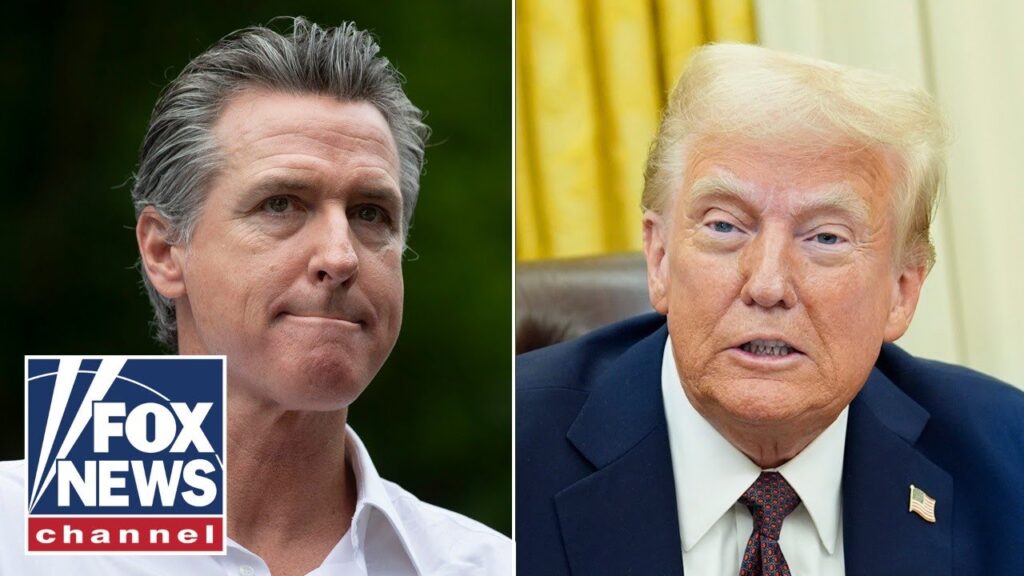Trump secures MAJOR win in legal battle against Newsom

Former President Donald Trump secured a significant legal win on Tuesday in his ongoing legal standoff with California Governor Gavin Newsom over the federal deployment of military forces in the state.
U.S. District Judge Charles Breyer denied California’s request for a temporary restraining order that would have immediately blocked the federal government’s use of California National Guard troops and U.S. Marines in Los Angeles. The ruling, while procedural, is widely seen as a major legal and political victory for Trump, who has faced sharp criticism for what Governor Newsom called an “unlawful militarization” of domestic affairs.

The legal dispute stems from Trump’s recent move to federalize more than 2,000 members of the California National Guard and deploy 700 active-duty Marines to Los Angeles. The former president cited “national security and immigration threats,” pointing to protests and unrest near federal immigration facilities as justification.
California Attorney General Rob Bonta and Governor Newsom filed suit earlier this week, arguing that Trump had exceeded his authority under the Constitution and violated the Posse Comitatus Act, which limits the use of federal troops for domestic law enforcement.
The state’s legal team sought an emergency order to block the deployments, arguing that the move “usurps state authority and threatens democratic norms.”
Judge Breyer, in his ruling, declined to issue the restraining order, writing that while the case raises “serious constitutional questions,” the court could not determine without a full hearing that the federal government’s actions amounted to an overreach.
“The Court recognizes the urgency of the matter,” Breyer wrote. “However, the standards for emergency relief have not been sufficiently met at this stage.”
A full hearing on the case is scheduled for Thursday, June 13, and will determine whether the deployment can continue or must be suspended pending further litigation.
Trump, who has made law and order a central theme of his campaign, hailed the ruling as a victory for “common sense and national security.”
“They tried to stop us from protecting the country—again,” Trump posted on his social media platform Truth Social. “But the courts agree: we’re doing the right thing. California is out of control, and someone has to act.”
His team has argued that under 10 U.S. Code § 12406, the president (or in this case, a former president acting under emergency powers recognized by federal statute) has authority to federalize National Guard troops in cases of insurrection or obstruction of federal law.
Governor Newsom reacted sharply to the court’s decision, calling it “deeply disappointing and constitutionally dangerous.”
“Allowing a former president to mobilize federal troops on state soil without the governor’s consent sets a dangerous precedent,” Newsom said at a press conference in Sacramento. “This is not about security—it’s about political theater at the expense of our democratic structure.”
He vowed to continue fighting the legal battle and called on other governors to defend states’ rights.
The ruling comes at a politically sensitive moment, as Trump continues to campaign ahead of the 2024 election rematch against President Joe Biden. His assertive posture on immigration and law enforcement issues has galvanized his base but alarmed many in the political center and left.
Legal experts say the case could shape the boundaries of presidential power, especially in matters of domestic military deployment.
“This could go all the way to the Supreme Court,” said constitutional law professor Emily Rios of UC Berkeley. “It raises unresolved questions about federalism, emergency powers, and civilian oversight of the military.”





